(In)Visible Ptolemaic Queens at the Recurring Egyptology Conference 2023
From 30th June to 2nd July 2023, the 54th edition of the Recurring Egyptology Conference (SÄK) took place at the University of Cologne under the title “Archaeology and Society”. In addition to the ancient societies of Egypt, the focus was particularly on the modern study of these societies as well as their reception and history of science. In several key lectures as well as an extensive range of presentations in two parallel sessions, numerous interesting aspects of the above-mentioned topics were presented and discussed over three days.
Our SPP and the DAI were represented by participants from three projects. We from the coordination took the chance to present the results of the Working Group (In)Visible Women to a professional audience. In the context of the revision of the chronologies of our African research regions, the WG has exemplarily taken on a revision of the Ptolemaic chronology. This chronology has been revised – initiated by our modern social development towards more equality amongst genders – by including the female rulers since Ptolemy I. The political and social significance of the female rulers is thereby reflected in the revised chronology of the Ptolemaic regions. Thus, the political and social importance of these women is taken into account and their active role in the history of Egypt is stressed.
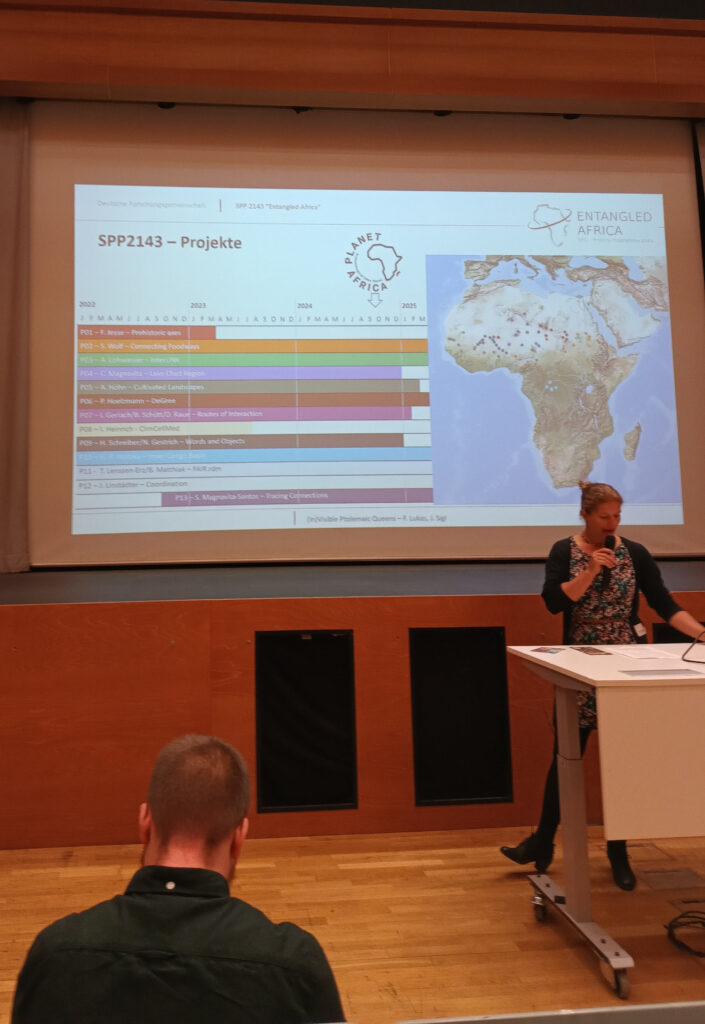
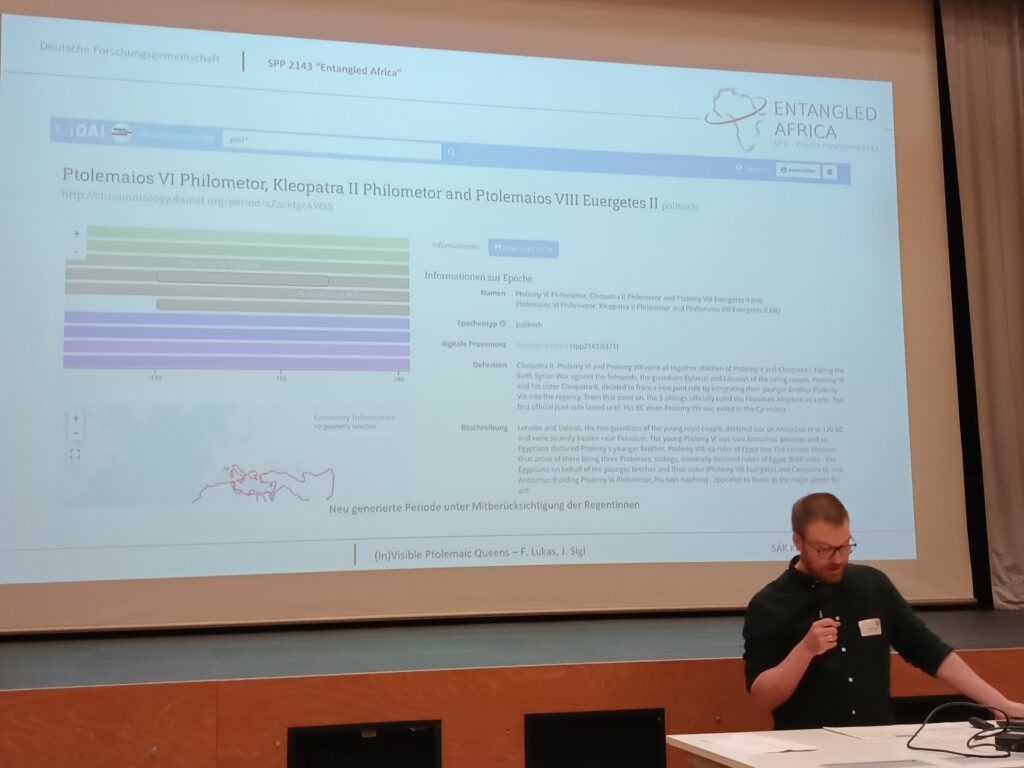
The feedback of the scholars was very positive throughout. In addition to the aspect of giving women and other groups that have received too little attention a greater voice, it was especially the more detailed structure of the chronology that convinced the attendees. The possibility of being able to assign finds and events more precisely to a period of rule and a regional frame of reference was particularly well received. Thus, the new version of the chronology could actually establish itself as a helpful alternative to the traditional classification; and at the same time make a small contribution to equality of opportunity.
At the same time, the DAI repository iDAI.chronontology was understood as an interesting medium for the modern and permanently citable presentation of chronological periods. Important suggestions came from the audience to make this repository a central linking point of data. For example, a link with original sources, such as those available online in the Thesaurus Linguae Aegyptiae (TLA), could be forward-looking. We will pursue these suggestions further in our SPP-WG Chonontology.
Apart from the academic events, there were numerous opportunities for the participants to get together personally and to exchange ideas. During the breaks, the spacious facilities of the university and the culinary offerings of the SÄK created a suitable setting for this. And on both evenings, after the end of the official program, numerous participants came together to explore the pub scene of the neighboring student district. In addition to lively discussions, this certainly awakened nostalgic deja vues of their own student years in some participants.
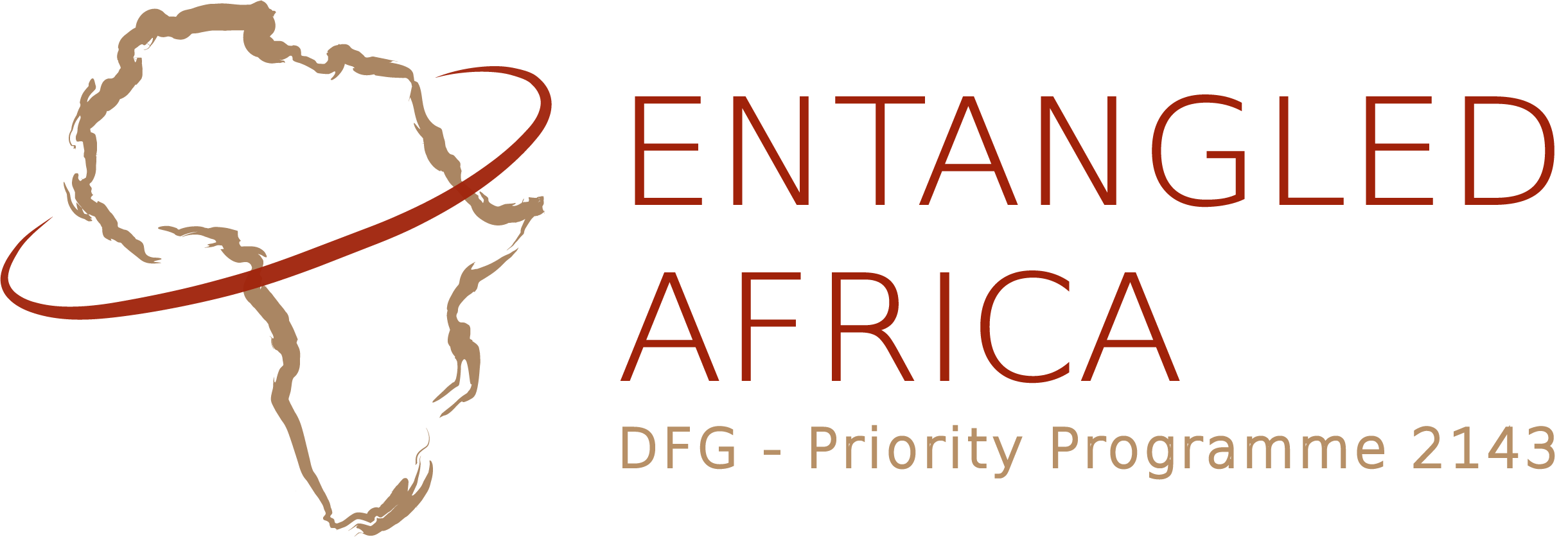
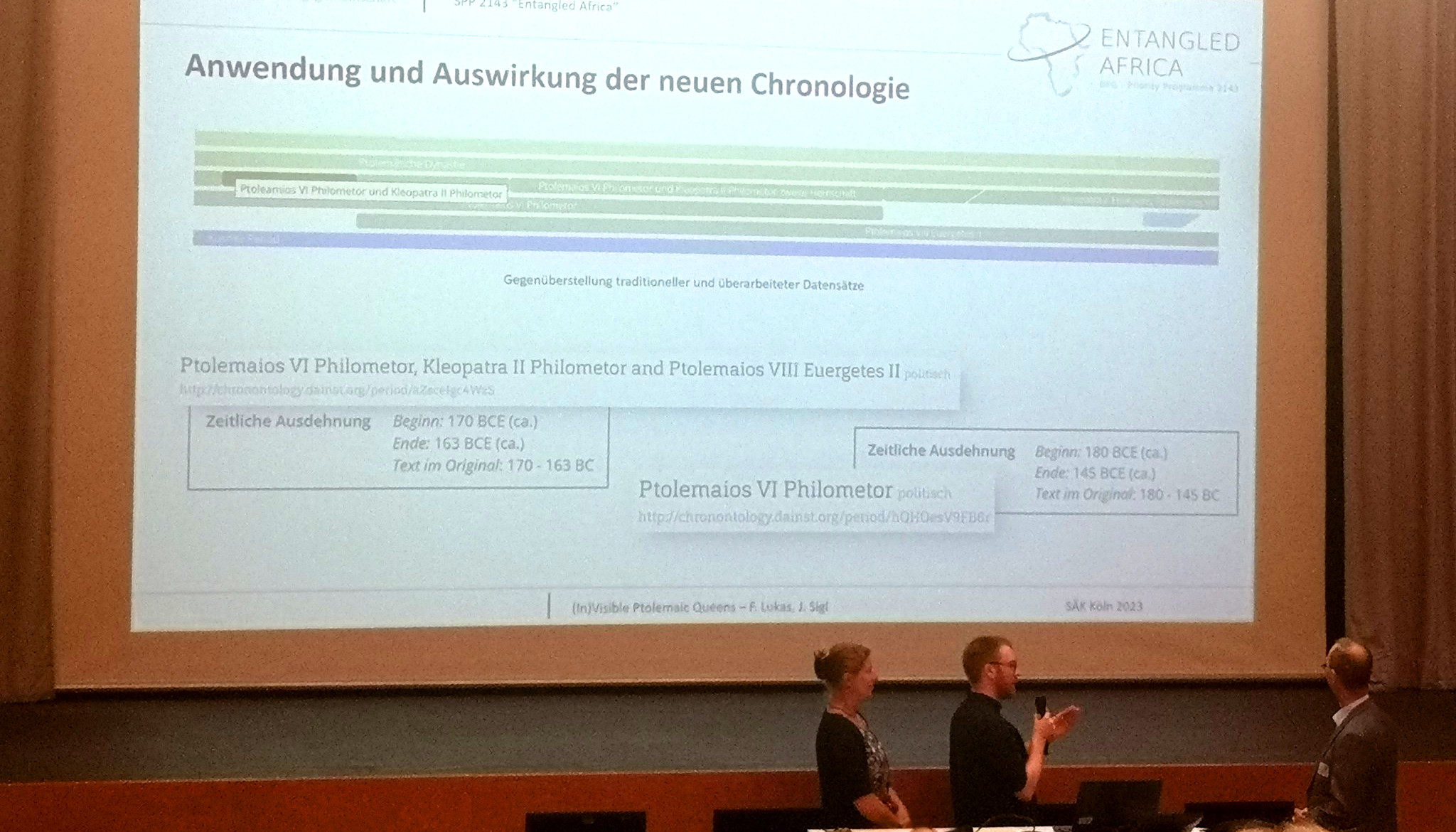

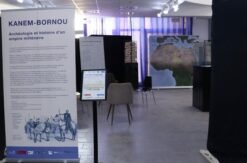
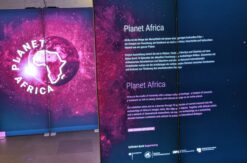
6. November 2023
[…] erhielt der Importprozess sowie das Kuratieren der Daten. Anhand der Ergebnisse der Arbeitsgruppe (In)VisibleWomen wurde beispielhaft gezeigt, wie sich das System eignet, um unterschiedliche Chronologie-Konzepte […]
6. November 2023
[…] so. Special attention was given to the import process and the curation of data. The results of the (In)VisibleWomen working group were used as an example to show how the system is suitable for displaying different […]